Sun, sea and sand in Greece is not bad, but it is even better if you get some good wines with it. One great destination is the islands in the Ionian Sea. There you can find some unusual wines, made from local grape varieties that match perfectly the Greek food. BKWine Magazine’s contributor Marina Mirzabekian takes you on a Greek adventure.
Everyone knows Greece and its picturesque beaches. But what do you know about Greek wines?
In fact, wine was so important to Ancient Greeks that they worshipped it in the form of a God – Dionysus. According to the myth, the king Οeneus once hosted Dionysus. Upon departure, the latter decided to gift the king a vineyard vine. The king planted it and when the fruit matured, he ate some grapes and made a must from the other grapes. After a while, he realized that they must have undergone fermentation and the final product was a pleasant drink – wine.
This text is inspired by a recent visit to a few Ionian Islands in Greece.
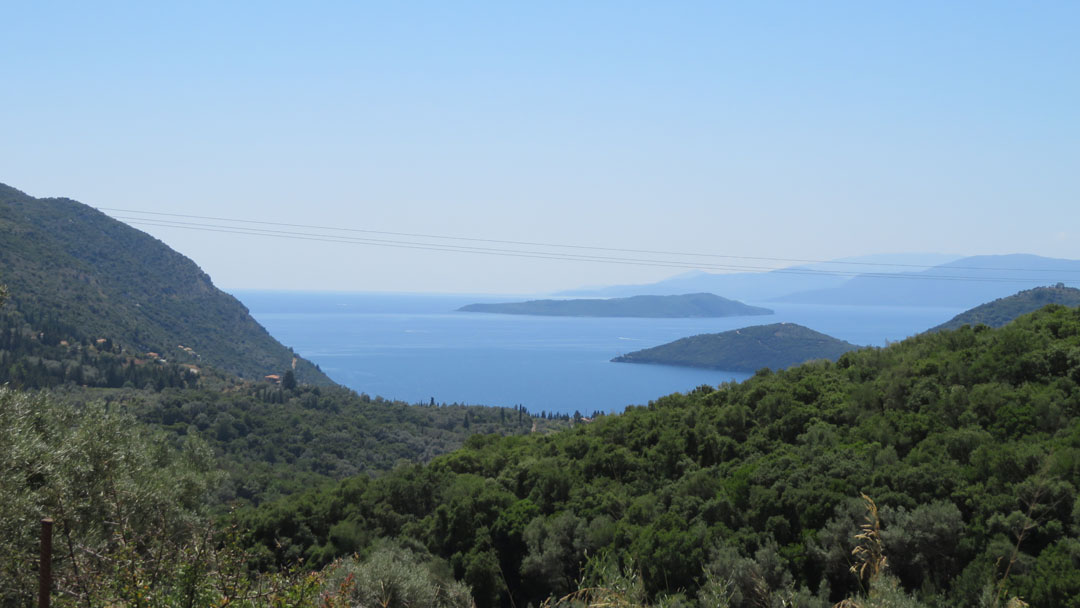
The Ionian Islands
First, let me give you a short summary of the Ionian Islands. All seven islands, scattered in the Ionian Sea, in the southern part of the Adriatic Sea, are hugely affected by neighbouring Italy. The Romans have dominated in this part of Greece for centuries. Consequently, even nowadays the music, the language, the architecture, the culture, the people, the food and the wine reminds you of Italy.
Undoubtedly, the island of Cephalonia prevails in wine production and boasts three PDO wines (geographic delimitations).
Local grape varieties: Robola, Muscat, Mavrodaphne
There are three main local grape varieties. The Robola, the flagship grape variety in the island, is considered to be one of the highest quality grapes in Greece. It can be characterized as “gout de terroir” in the sense that it expresses the nuances of the vineyard where it is grown. Lemon colour, with medium body and aromas of citrus, green apple and pear dominate. After ageing the wines in oak barrels, the Robola gives some honey aromas as well.
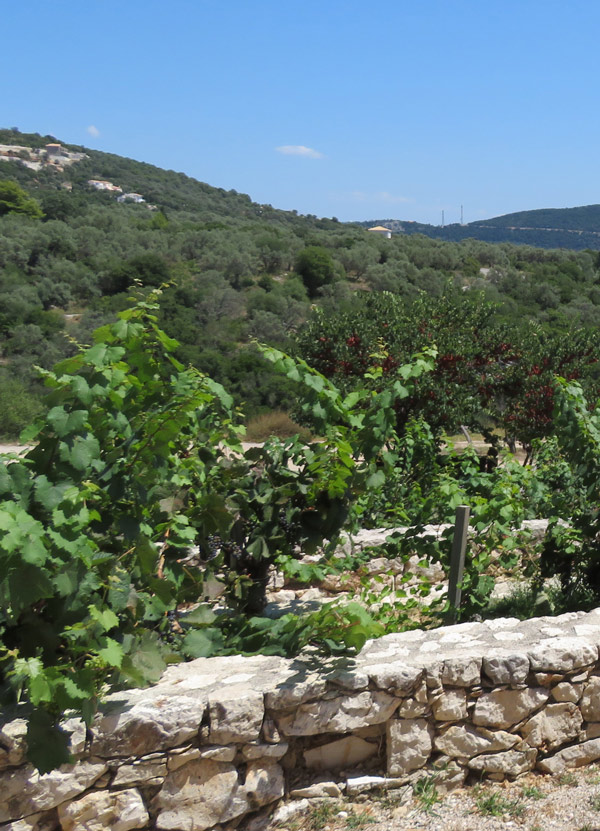
Then we have the versatile Muscat, one of the ancient grape varieties in Greece, of which mainly sweet wines are produced. The majority of them are made from sun-dried grapes in order to raise the level of sweetness in the wine. Significantly, only sweet wines are under the PDO classification. Medium acidity, aromas of roses, citrus peel and hints of honey when young and marmalade and dried fruit as the wine ages.
Last by not least, the aromatic and romantic Mavrodaphne. There are two versions of what is the origin of the name Mavrodaphne. The charming version is that a man named Gustav Clauss loved a girl, Daphne. She had black hair and eyes. Black in Greek is ‘’mavro’’. He lost her at an early age and therefore, he named the grape variety Mavrodaphne to honour her. The less romantic version is that the grape was named after the black skin of the grape and the aromas of laurel (daphne in Greek) that the grape has.
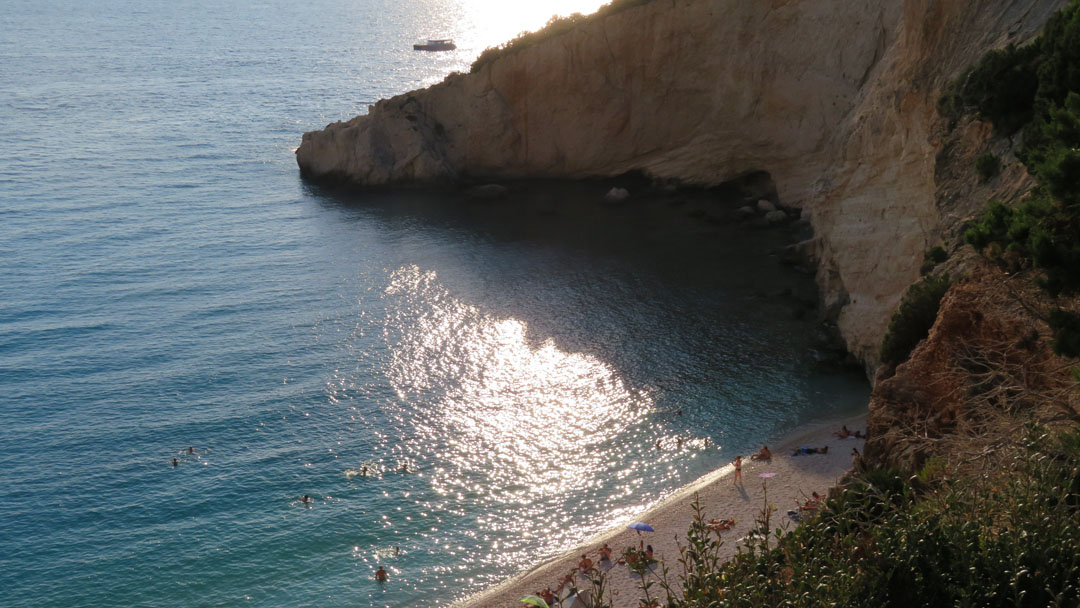
The fact is that Clauss settled in the city of Achaia in Northern Peloponnese. He founded one of the most iconic wineries in Greece, the Achaia Clauss Winery. Although there are some dry wines made of Mavrodaphne grape variety, only the sweet ones (typically from sun-dried grapes) are PDO wines. The ageing in oak barrel makes the wine rich in colour and full-bodied. Among the luscious aromas, you can find above all prunes, dried figs, chocolate and coffee.
The island of Lefkada
One of the main islands in the Ionian Sea is Lefkada. It may not be the major player in wine production in the area but there are two rare grape varieties grown almost exclusively on the island. We paid a visit to a major winery of Lefkada, the Lefkaditiki Gi Winery. It is nestled among the numerous mountains of Lefkada, with vineyards and olive trees. Such a Greek scene. The red Vertzami is planted on 70% of the vineyards. It is extremely high in anthocyanins, containing more of these compounds than Cabernet Sauvignon. It has a huge potential for ageing, usually up to two years. Prune, cinnamon, vanilla and dried cherries dominate.
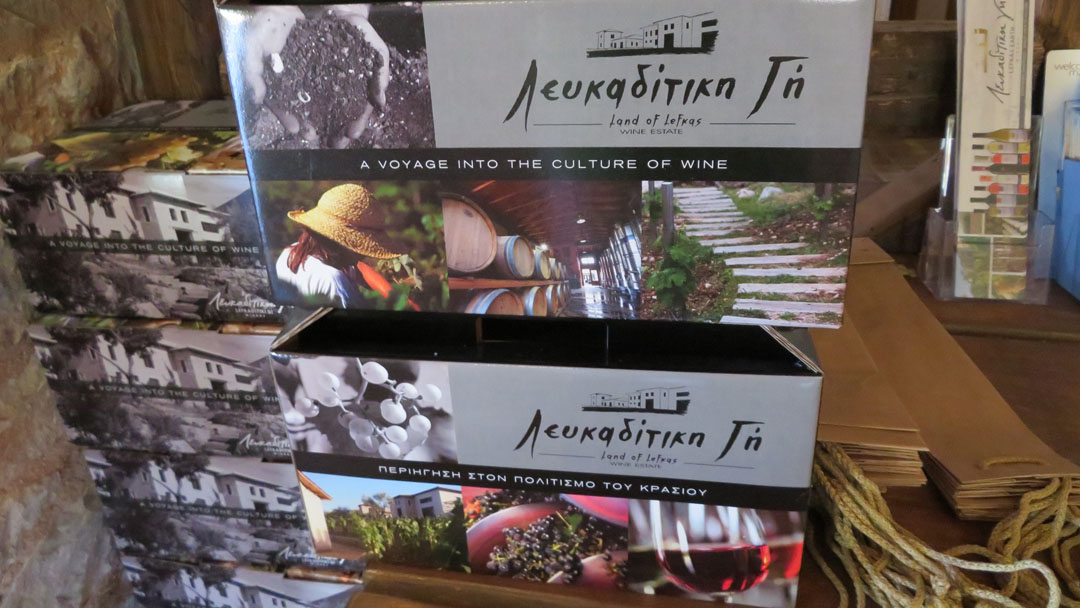
My husband and I agreed that the most distinctive wine was the dry wine from the variety Vardea. The wine is fermented with the skin for 24 hours, and aged in oak barrels for 6 months. The result is a summer wine, with refreshing acidity, light but at the same time a complex wine, ideal to be paired with Greek seafood.
When planning your visit to the Ionian Islands, enrich your sun-sea-sand experience with local wines paired with traditional dishes. Υummy!
Marina Mirzabekian, a WSET graduate, writes about Armenian and Greek wines, born in Greece she lives in Armenia since several years.
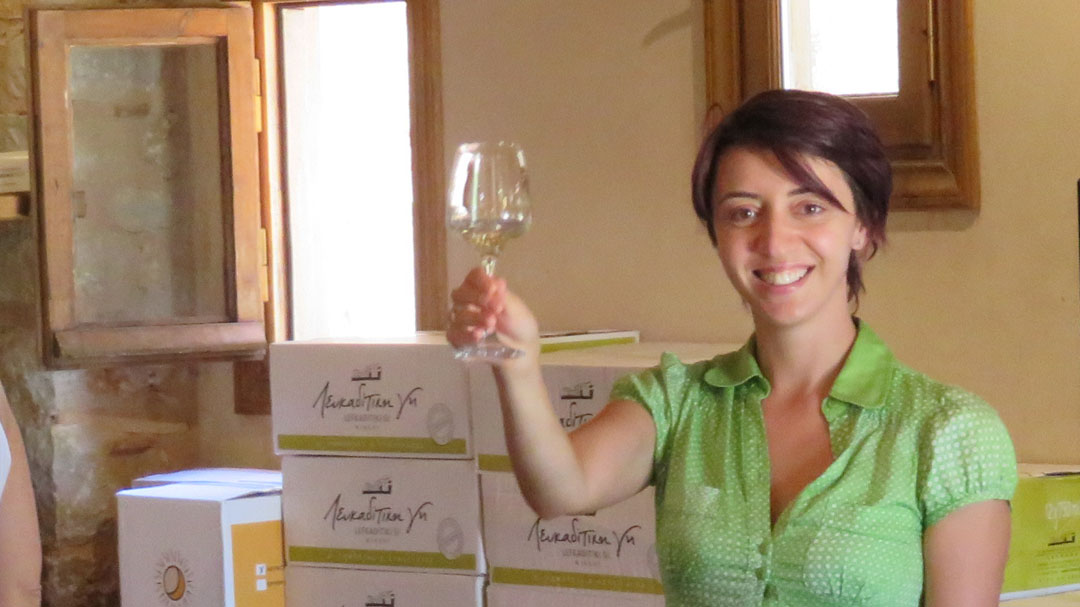









One Response
Nice article!
Here below, some questions, though:
Vertzami, also called Lefkada, is also cultivated in Cyprus.
What about the other Ionian islands, Corfou, Zakynthos, Ikaria, etc?